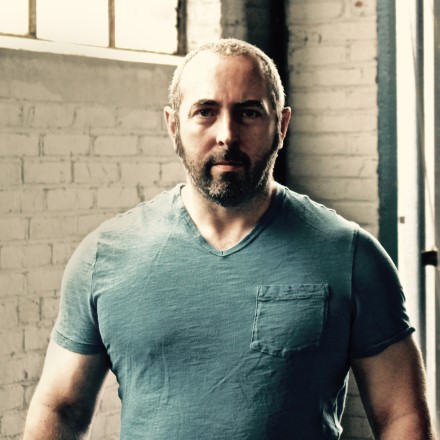It appears that serial killers, whether in the UK, the US, or Canada, select occupations that offer them three things: lack of supervision, freedom of movement, and solitude. It is not clear, whether they seek these types of occupation consciously and deliberately or whether because of these conditions they are given an advantage in offending. This is similar to the discussion regarding pedophilic sexual abuse in the Roman Catholic church i.e., were/are pedophiles attracted to the priesthood because celibacy – with adults -would not be an issue, and being in an organization like the church would give them access to a large number of potential victims, and have the protection of the church etc., or once in such an organization, and presented with opportunities to offend, along with sexual frustration, did/do they take advantage of their situation etc. The question remains; if Harold Shipman, had never been a doctor with such a large number of elderly patients, would he have engaged in serial murder? Or would Peter Sutcliffe if he'd never obtained his HGV (Heavy Goods Vehicle) license, have engaged in the geographically widespread killing spree that he did i.e., a large part of his ability to evade detection and capture for so long came from the fact that he understood UK road networks extremely well, and was able to target victims from a large number of different locations etc. In this article I want to finish up this series on serial killers by looking at how their various occupations may have helped them/facilitated their crimes.
In Routine Activity Theory, for an offense to be committed there must be: a motivated offender, a suitable target, and the absence of a capable guardian. Eck built on this model suggesting that there were three controlling aspects, that were either present or absent. He put forward the idea that because an offender and a victim, must meet in time and space, there were such things as place managers e.g., if a shopkeeper had eyes on the streets outside their shop, they would act as a place manager, who had an investment in making sure that crime did not occur in this location, as people would stop visiting their shop etc. He also introduced the idea of “Handlers” who could influence and prevent offenders from committing their offenses e.g., whilst children and teenagers are in school, their teachers act as handlers stopping them from offending, and when they go home after school, their parents act as handlers etc. The times when a handler is absent are the times when the risk of them engaging in criminal activity increases (this is where after school programs, where there are other handlers present, can have a significant influence on reducing crime). One of the most amazing aspects of Harold Shipman’s offending was that he was able to administer so many massive and lethal doses of diamorphine to his elderly patients, for such an extended period of time; killing what is suspected to be somewhere over 250 individuals. Each death certificate issued by Shipman had to be countersigned, and the sheer number of them was not typical of the average GP (General Practitioner). Shipman lacked a “handler”, who could supervise his work. He was a respected doctor, in a profession that is/was generally trusted. He is not alone in being a healthcare professional who engaged in serial murder. Four Viennese nurses (named the angels of death) working together killed at least 49 patients between 1983 and 1991 – the case is rare because the perpetrators were female and didn’t work alone (something that appears to be more of a characteristic of female serial killers than male ones).
Peter Sutcliffe, the Yorkshire Ripper, began his killings, after becoming a lorry/truck driver, having exhibited warning signs before this e.g., he’d assaulted two sex workers, with a weapon before he began his killing spree. Sutcliffe resented supervision and craved solitude, admitting that he hated working when others were present whether he was in the supervising or supervised role. When he was demoted from a supervisory position back to a position where he could work on his own, rather than being angry and resentful, he was both relieved and ecstatic. Although he never committed any of his offenses during working hours, he used his time driving a lorry, to visit areas that he would then offend in. His time unsupervised and on his own, gave him time to fantasize and plan his killings and aquaint himself with the road networks, that allowed him to enter and exit an abduction site, quickly and effectively. His knowledge of the local geography also gave him an understanding of what would make a good killing site, and a later disposal site. Having, a different abduction, killing and disposal site is one way to make detection more difficult, and Sutcliffe is neither the first nor the last serial killer who has worked in the transport industry as a truck/lorry driver e.g., in the US, John Robert Williams (thirty known victims), William Bonin, who became known as the Freeway Killer/Strangler (fourteen counts of first degree murder), and Keith Hunter Jesperson (who confessed to 185 murders) etc. In fact, the FBI recognize that the US road networks, and those whose work is associated with them, offers offenders a huge number of offending opportunities and in response to the John Robert Williams case created a special division to examine crimes that are related to them.
We may often think of offenders as having crime careers that have no relationship to legitimate occupations, however the number of offenders who “work” full-time is far less than those who have are employed in some capacity and offend on a part-time/secondary basis etc. Sometimes, offenders will choose a career/occupation that allows them the opportunity to offend or helps facilitate their offending (Sutcliffe), and other times it may be that an individual engaged in an opportunity (such as medicine/healthcare) recognizes the opportunities that their job and working environment afford them e.g., Harold Shipman.
Share:

Gershon Ben Keren
2.8K FollowersGershon Ben Keren, is a criminologist, security consultant and Krav Maga Instructor (5th Degree Black Belt) who completed his instructor training in Israel. He has written three books on Krav Maga and was a 2010 inductee into the Museum of Israeli Martial Arts.
Click here to learn more.

